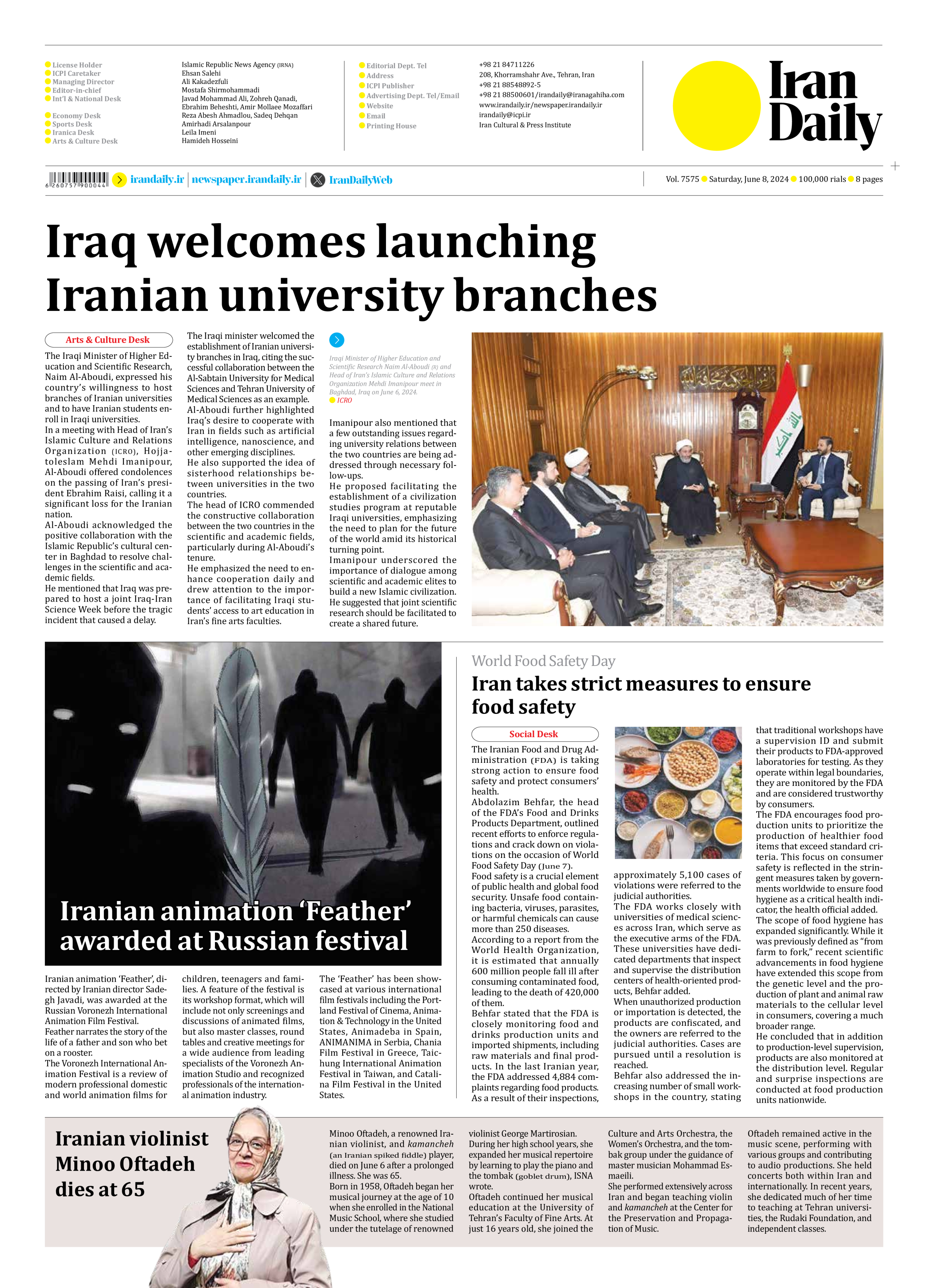
World Food Safety Day
Iran takes strict measures to ensure food safety
The Iranian Food and Drug Administration (FDA) is taking strong action to ensure food safety and protect consumers’ health.
Abdolazim Behfar, the head of the FDA’s Food and Drinks Products Department, outlined recent efforts to enforce regulations and crack down on violations on the occasion of World Food Safety Day (June 7).
Food safety is a crucial element of public health and global food security. Unsafe food containing bacteria, viruses, parasites, or harmful chemicals can cause more than 250 diseases.
According to a report from the World Health Organization, it is estimated that annually 600 million people fall ill after consuming contaminated food, leading to the death of 420,000 of them.
Behfar stated that the FDA is closely monitoring food and drinks production units and imported shipments, including raw materials and final products. In the last Iranian year, the FDA addressed 4,884 complaints regarding food products. As a result of their inspections, approximately 5,100 cases of violations were referred to the judicial authorities.
The FDA works closely with universities of medical sciences across Iran, which serve as the executive arms of the FDA. These universities have dedicated departments that inspect and supervise the distribution centers of health-oriented products, Behfar added.
When unauthorized production or importation is detected, the products are confiscated, and the owners are referred to the judicial authorities. Cases are pursued until a resolution is reached.
Behfar also addressed the increasing number of small workshops in the country, stating that traditional workshops have a supervision ID and submit their products to FDA-approved laboratories for testing. As they operate within legal boundaries, they are monitored by the FDA and are considered trustworthy by consumers.
The FDA encourages food production units to prioritize the production of healthier food items that exceed standard criteria. This focus on consumer safety is reflected in the stringent measures taken by governments worldwide to ensure food hygiene as a critical health indicator, the health official added.
The scope of food hygiene has expanded significantly. While it was previously defined as “from farm to fork,” recent scientific advancements in food hygiene have extended this scope from the genetic level and the production of plant and animal raw materials to the cellular level in consumers, covering a much broader range.
He concluded that in addition to production-level supervision, products are also monitored at the distribution level. Regular and surprise inspections are conducted at food production units nationwide.







